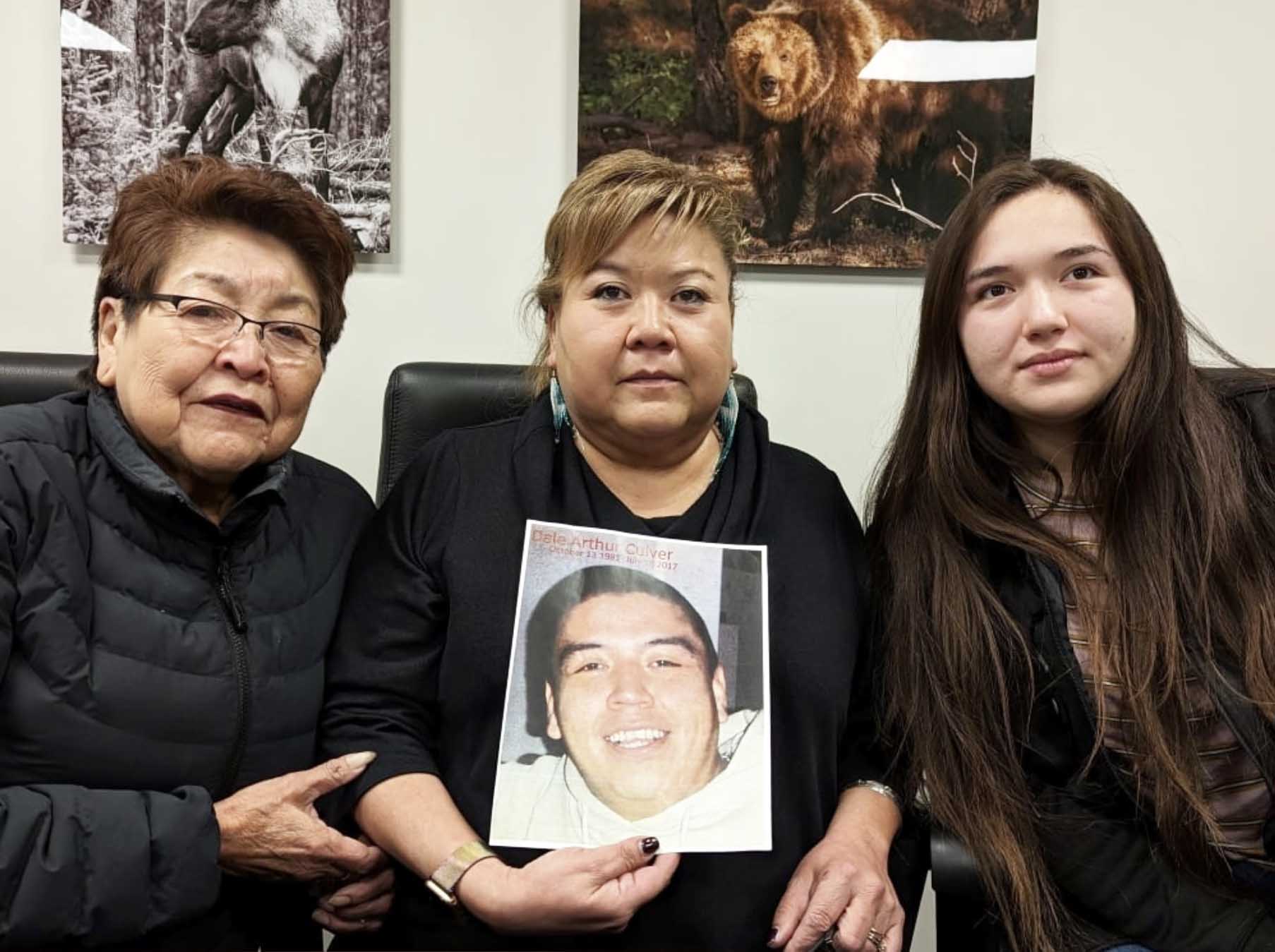Dale Culver’s family wonders if they’ll ever get answers about how the Indigenous man died.
The family of an Indigenous man who died while being arrested by Prince George RCMP officers wonder if they will ever know what really happened after an officer was convicted of attempting to obstruct justice.
Provincial court judge Adrian Brooks last Thursday found Const. Arthur Dalman guilty of attempting to obstruct justice and ruled Dalman had lied under oath during his trial.
“Something went wrong that night,” said Debbie Pierre, whose cousin, Dale Culver, died in police custody on July 18, 2017. “We only got a glimpse of what truly happened and that resulted in Dale’s death.”
Pierre described “extremely mixed” feelings about Thursday’s decision, which found Dalman had obstructed justice by threatening bystanders unless they deleted videos of the arrest. A second officer, Sgt. Bayani Eusebio Cruz, was acquitted of the same charge.
Brooks found Dalman, who had been with the force less than six months at the time of the incident, deliberately lied on the stand.
He rejected most of Dalman’s evidence based on that lie and what he described as testimony “fraught with illogical missteps” and “subject to alteration on the slightest prodding.”
“It is not worthy of any belief,” Brooks found.
Despite “serious concerns” with Cruz’s evidence, Brooks said his testimony raised enough reasonable doubt to acquit the senior officer, an investigator with 22 years’ service with the RCMP.
RCMP senior media relations officer Staff Sgt. Kris Clark said in an email that Dalman remains “operational” with the force, a status that is subject to continuous review. “As there is a possibility of an appeal and we have yet to receive the full written decision, it would be inappropriate to comment further,” Clark added.
The BC Prosecution Service abandoned several other charges related to Culver’s death. Const. Paul Ste-Marie and Const. Jean Francois Monette were charged with manslaughter last year for their role, but Crown prosecutors stayed the charges, saying conflicting forensic evidence made convictions unlikely.
A third officer, Const. Clarence Alexander MacDonald, also faced an obstruction charge, which the BC Prosecution Service stayed in May. The service said it would issue a statement about its decision to stay the charge after all proceedings in the Cruz and Dalman cases had concluded, including any appeals. It declined to say whether the recent decision could affect the charges that have been stayed, citing the potential for further litigation.
According to a statement issued earlier this year by the BC Prosecution Service, Culver, who was Wet’suwet’en and Gitxsan, was riding his bike in downtown Prince George shortly after 10 p.m. on the night he died. Around the same time, RCMP received a complaint of someone casing vehicles in the area.
When a police officer approached Culver believing he might be involved, Culver cycled away, the prosecution service said. The officer determined that he could be arrested, either for evading police or for not wearing a helmet.
He pursued Culver and pulled him from his bike, according to the service. A struggle ensued and the officer pressed a panic button to alert other police in the area.
Several RCMP vehicles arrived at the scene and about seven officers surrounded Culver during the three-minute altercation that followed.
